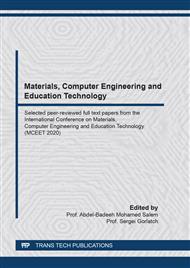p.272
p.282
p.291
p.302
p.309
p.318
p.331
p.341
p.348
Time-Weighted Collaborative Filtering Algorithm Based on Improved Mini Batch K-Means Clustering
Abstract:
The traditional collaborative filtering recommendation algorithm has the defects of sparse score matrix, weak scalability and user interest deviation, which lead to the low efficiency of algorithm and low accuracy of score prediction. Aiming at the above problems, this paper proposed a time-weighted collaborative filtering algorithm based on improved Mini Batch K-Means clustering. Firstly, the algorithm selected the Pearson correlation coefficient to improve the Mini Batch K-Means clustering, and used the improved Mini Batch K-Means algorithm to cluster the sparse scoring matrix, calculated the user interest score to complete the filling of the sparse matrix. Then, considering the influence of user interest drift with time, the algorithm introduced the Newton cooling time-weighted to improve user similarity. And then calculated user similarity based on the filled score matrix, which helped to get the last predicted score of unrated items The experimental results show that, compared with the traditional collaborative filtering algorithms, the mean absolute error of Proposed improved algorithm is d, and the Precision, Recall and F1 value of MBKT-CF also get a large improvement, which has a higher rating prediction accuracy.
Info:
Periodical:
Pages:
309-317
DOI:
Citation:
Online since:
April 2021
Authors:
Price:
Сopyright:
© 2021 Trans Tech Publications Ltd. All Rights Reserved
Share:
Citation:


